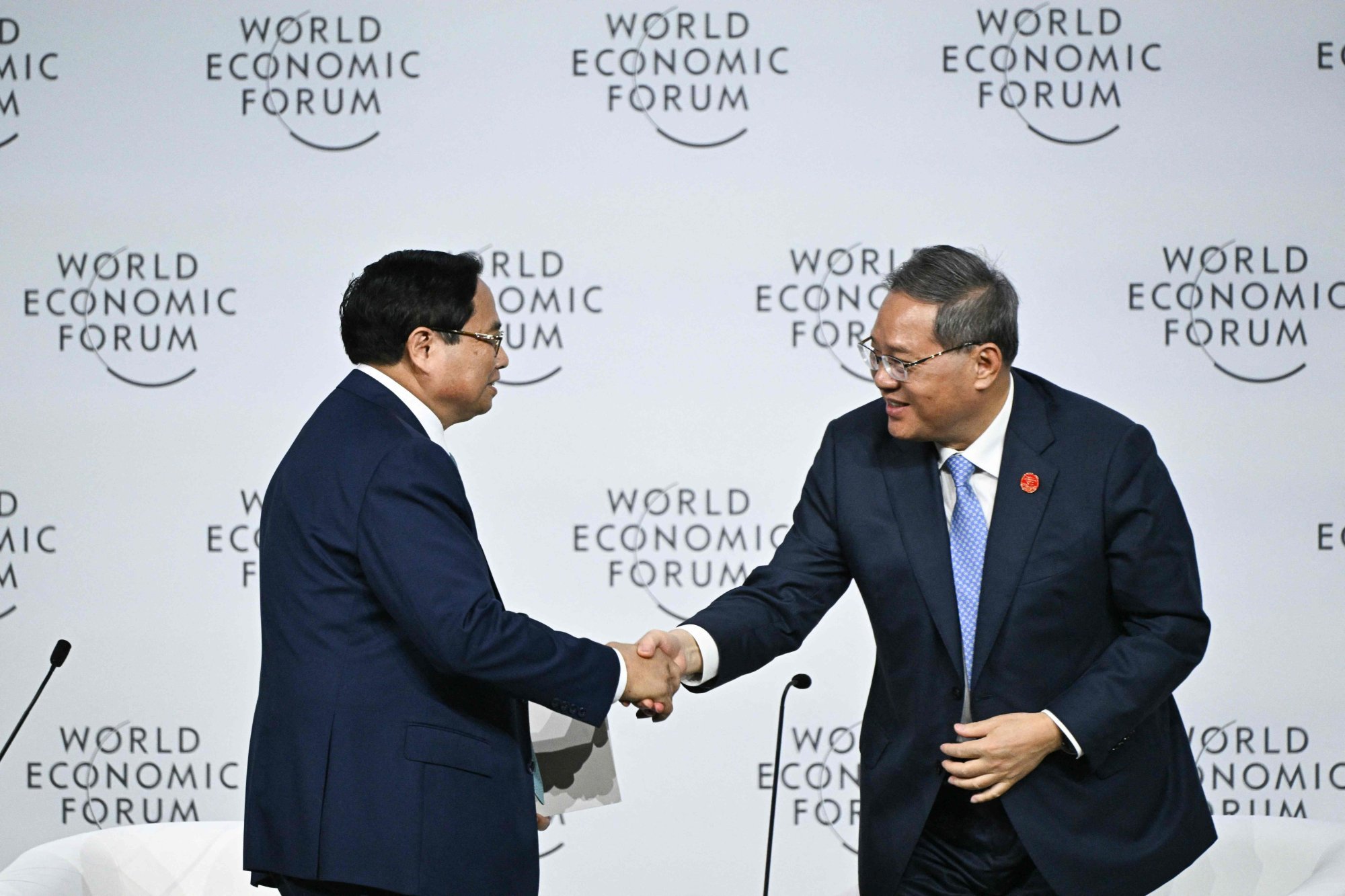China and Vietnam must build stronger ties, ‘shared destiny’, Xi Jinping tells counterpart
On Wednesday, Xi restated his pledge made in December with Vietnamese Communist Party boss Nguyen Phu Trong to build a “China-Vietnam community of shared destiny with strategic significance”.
“China is willing to encourage more Chinese enterprises to increase their investment in Vietnam and [we] hope that the Vietnamese side will provide a fair, just and non-discriminatory business environment for Chinese enterprises,” Xi said.
For its part, Vietnam regarded strategic mutual trust and pragmatic cooperation with China to build a community of shared destiny a “top priority and strategic choice” in its foreign policy, Chinese state broadcaster CCTV quoted Chinh as saying.
“This cannot be undermined by outside provocations and interference,” Chinh reportedly said.
Chinh said Vietnam was willing to boost multilateral collaboration and manage differences “appropriately”.

China is Vietnam’s largest trading partner and a major foreign investor.
In recent years, Vietnam has become a popular destination for manufacturing and supply chains as some companies exit China against the backdrop of Sino-American trade tensions.
At the same time, Hanoi has elevated aspects of its relations with Washington and its allies into strategic partnerships.
China and Vietnam have each argued they have rights to the resource-rich waters and built artificial islands to reinforce actual control there. In 1974 they fought briefly over the Paracel Islands and in 1988 engaged in a military skirmish over the Spratly Islands.